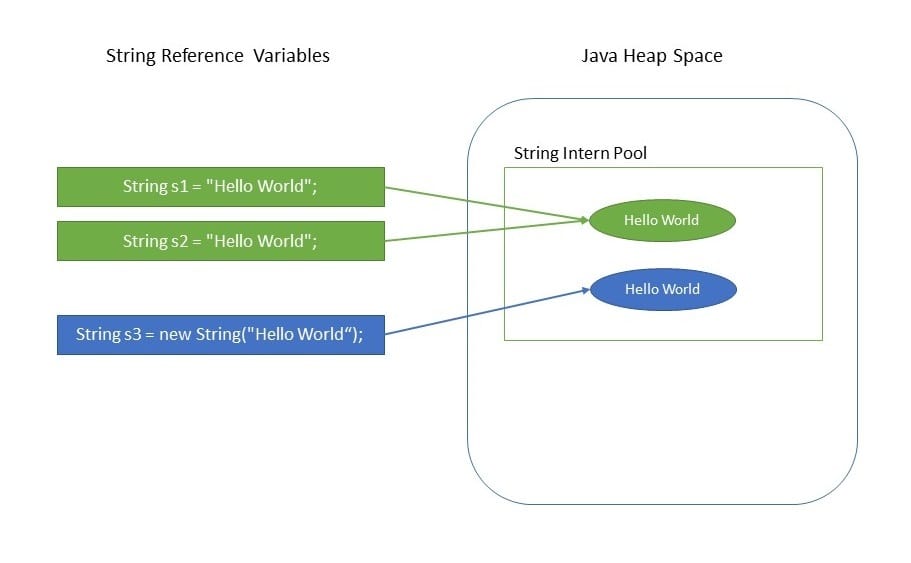What Is Immutable Strings and How It Works
In the world of programming, comprehending the principle of unalterable strings is vital for creating protected and durable applications. Unalterable strings refer to strings that can not be changed after they are produced, making certain information stability and predictability within the code.
The Basics of Unalterable Strings
Unalterable strings, as a basic concept in programming, are character sequences that can not be transformed as soon as they are produced. This indicates that when a string is designated a worth, that worth can not be modified. In languages like Python and Java, strings are unalterable things, causing various ramifications in terms of memory administration and data integrity.
Among the essential benefits of immutable strings is that they give a complacency in data control. Because the content of an immutable string can not be customized, it makes certain that the original information stays intact, reducing the threat of unintentional adjustments during program execution (Why are strings immutable in Java?). This building also simplifies debugging procedures, as programmers can rely on that once a string is specified, its value will not be accidentally altered
When a new string is created based on an existing one, instead than changing the original string, the new worth is saved separately. Overall, recognizing the basics of unalterable strings is crucial for understanding shows concepts and optimizing code effectiveness.
Advantages of Immutable Strings
Building upon the safety and security and performance advantages of immutable strings, their benefits encompass enhancing code dependability and simplifying concurrent shows tasks. By being unalterable, strings can not be modified after development, which eliminates the danger of unintentional changes in the information they keep. This integral immutability ensures that as soon as a string is developed, its worth stays constant throughout the program's execution, reducing the opportunities of bugs brought on by unforeseen alterations.
Furthermore, immutable strings add to code reliability by making it simpler to reason regarding the state of a program. Since strings can not be changed, programmers can trust that a string will certainly constantly hold the exact same worth, streamlining debugging and upkeep efforts. This predictability results in more dependable and secure codebases.

Implementation in Programs Languages
Within different programs languages, the unification of unalterable strings is an essential element that impacts how information is taken care of and controlled within code structures. The application of unalterable strings differs across various shows languages, with each language supplying its own mechanisms to sustain this concept.

In contrast, languages like C and C++ do not have integrated support for immutable strings. Designers in these languages must by hand implement immutability by enforcing regulations within their code to avoid straight adjustments to string objects.
Finest Practices for Working With Unalterable Strings
When taking care of immutable strings in programs languages like check my site Java and Python, sticking to finest practices makes certain efficient and safe data control. Among the vital best techniques is to make use of StringBuilder or StringBuffer rather than straight adjusting strings, specifically when taking care of considerable concatenation procedures. These classes provide mutable alternatives for string manipulation, aiding to stay clear of unneeded memory allocations and improving efficiency.
Furthermore, when functioning with delicate data such as passwords or API secrets, it is critical to avoid keeping them as plain text in immutable strings. Using secure storage space mechanisms like char ranges or specialized libraries for dealing with sensitive details helps minimize security threats associated with unalterable strings.
Real-world Applications and Instances
Checking out useful implementations of unalterable strings in various sectors reveals their significant influence on data stability and system dependability. In the medical care industry, unalterable strings play an essential role in making sure the security and confidentiality of patient information. By avoiding unauthorized alterations to sensitive details such as medical documents and prescriptions, immutable strings aid maintain compliance with stringent personal privacy laws like HIPAA.
Banks also gain from the immutable nature of strings to boost the protection of client information and deal records. Unalterable strings aid prevent fraud and unapproved alterations to economic details, offering a durable defense versus cyber risks and making sure the trust fund and confidence of customers.

Conclusion
To conclude, immutable strings are repaired and stable sequences of personalities that supply advantages such as thread security and boosted efficiency in programs. They are executed in different programs languages to make sure information integrity and security. Finest methods for functioning with immutable strings consist of avoiding direct modifications and making use of methods that return new string items. Real-world applications of unalterable strings include data encryption, caching, and string control tasks.
Unalterable strings refer to strings that can not be modified after they are created, making certain information honesty and predictability within the code. When a brand-new string is developed based on an existing one, rather than customizing the initial string, the new worth is kept individually.In languages like Java and Python, strings are unalterable by default, meaning that when a string object is created, its value can not be changed - Why are strings immutable in Java?. Ideal practices for functioning with immutable strings include preventing direct alterations and making use of approaches that return new string things. Real-world applications of unalterable strings consist of data file encryption, caching, and string control tasks